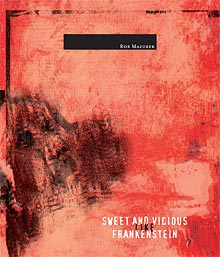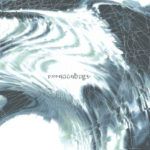Sweet And Vicious Like Frankenstein
14,00 € VAT Included
Only 1 left in stock
“Sweet and Vicious Like Frankenstein represents a normal step in light of the evolution of Rob Mazurek’s music over the last decade. Still, it is probably not what you are expecting, especially if you take his previous solo effort, Silver Spines, as a point of comparison. There is not a cornet in sight; this album is all electronics. Mazurek uses a computer, a mini-disc, and a tone generator — that’s it. The approach has nothing to do with jazz, rock, or even free improvisation. It could be seen as a tribute to early musique concrète and computer music. It stands somewhere between sound collage, kitsch electronics, and noise — and, if you can (or are willing to) get over the initial shock, this album is actually quite strong. There are two extended pieces. “Body Parts (Spectral White),” 40 minutes long, is an intriguing work progressing by episodes of four or five minutes, roughly pieced together like the parts of Frankenstein’s creation. Some sections are strongly reminiscent of early electronic music (Vladimir Ussachevsky, Hugh Le Caine, Pierre Henry, Arne Nordheim), while other ones range from microsonic computer treatments to harsh sound experiments and field recordings. The early electronics bits come back regularly, acting like a leitmotiv and reinforcing the analogy with Frankenstein (experimentation in the infancy of a technology) and, through the character, with old horror movies. “Electric Eels (In Half Light)” is neither as conceptually rich nor as striking. In contrast with the previous piece, it presents a uninterrupted 25-minute flow of sounds, mostly harsh and escalating. Reference points include Kevin Drumm and Merzbow (although the piece is slightly less brutal than the latter’s usual output). Sweet and Vicious Like Frankenstein could have been an episode of self-indulgence from a man who obviously likes to dip his fingers into as many bowls as he sees fit. Instead, it came out as a very honest effort in sound art, the work of a man who knew what he was doing, not a dilettante. Nevertheless, approach with caution if you were hoping for some abstract cornet playing.”














